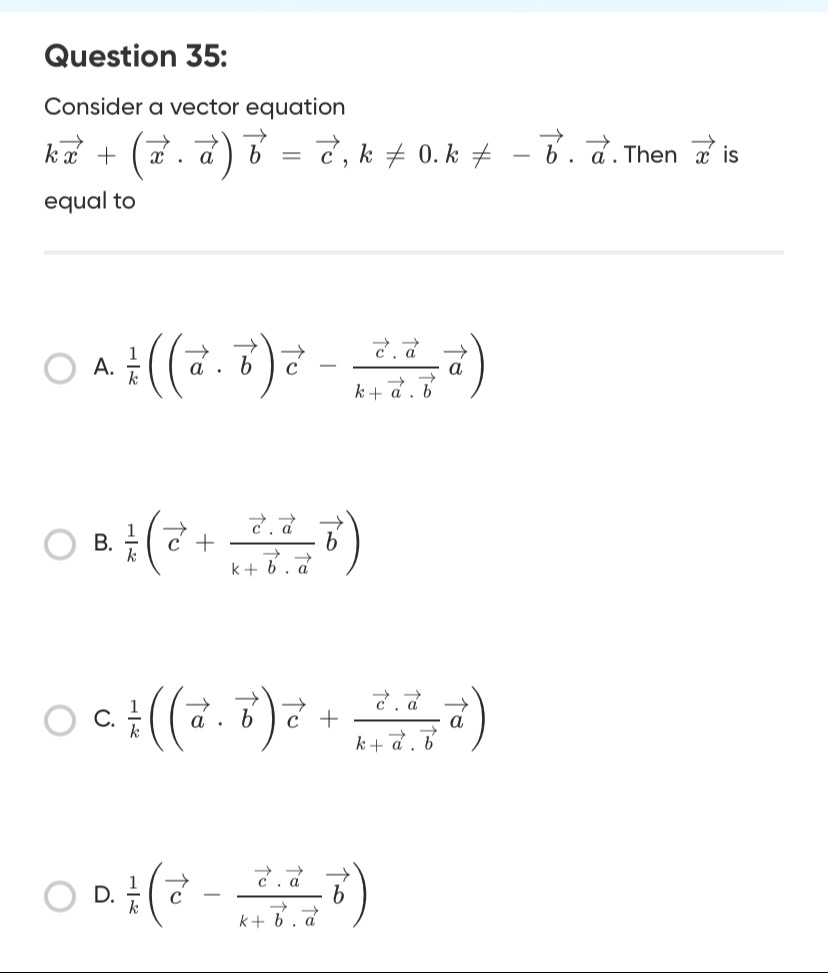Question
Question: Consider a vector equation $k\overrightarrow{x} + (\overrightarrow{x} \cdot \overrightarrow{a}) \ove...
Consider a vector equation kx+(x⋅a)b=c,k=0.k=−b⋅a. Then x is equal to

k1(((a⋅b)c−k+a⋅bc⋅aa)
k1(c+k+b⋅ac⋅ab)
k1(((a⋅b)c+k+a⋅bc⋅aa)
k1(c−k+b⋅ac⋅ab)
D
Solution
Let the given vector equation be kx+(x⋅a)b=c. Let S=x⋅a. Since x and a are vectors, S is a scalar. The equation becomes kx+Sb=c. Rearranging to solve for x: kx=c−Sb x=k1(c−Sb)
Now, we find the scalar S by taking the dot product of x with a: S=x⋅a Substitute the expression for x: S=(k1(c−Sb))⋅a Using the linearity property of the dot product: S=k1(c⋅a−(Sb)⋅a) S=k1(c⋅a−S(b⋅a)) Multiply both sides by k: kS=c⋅a−S(b⋅a) Rearrange to solve for S: kS+S(b⋅a)=c⋅a S(k+b⋅a)=c⋅a Given that k=−b⋅a, the term (k+b⋅a) is non-zero, so we can divide by it: S=k+b⋅ac⋅a
Substitute this value of S back into the expression for x: x=k1(c−Sb) x=k1(c−k+b⋅ac⋅ab)
